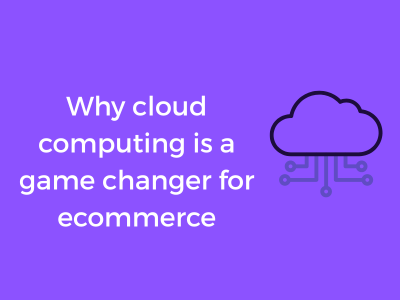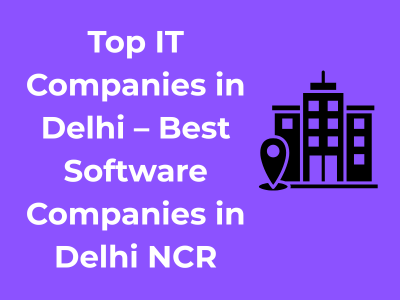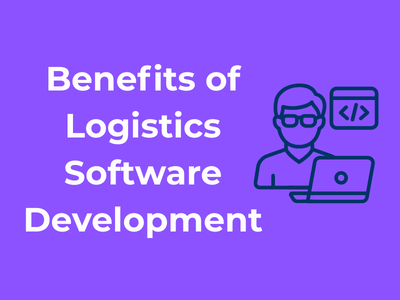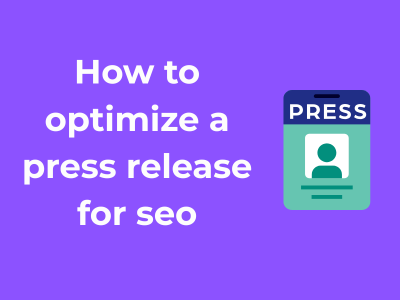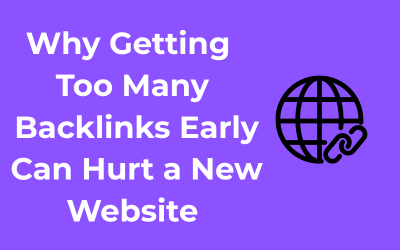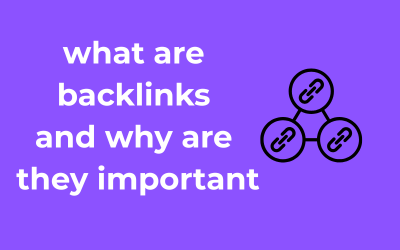Running an online store is exhilarating, isn’t it? One moment you’re managing a surge of holiday shoppers, and the next, it’s a calm weekday hum. The ecommerce world is dynamic and unpredictable. If there’s one thing online businesses need to thrive, it’s flexibility. And this is where cloud computing steps in as the ultimate game changer.
Why Flexibility Matters in Ecommerce
Think about it—a traditional server setup often feels like trying to stuff all your belongings into a suitcase that doesn’t expand. It works until it doesn’t. When you experience a sudden spike in traffic, those outdated systems struggle to cope. What happens next? Downtime, frustrated customers, missed sales—yikes!
Cloud computing changes the narrative. It’s like having a magical, expandable suitcase where you only use as much space as you need. Whether you’re a small startup testing the waters or a booming ecommerce giant handling Black Friday mayhem, cloud platforms let you scale resources flexibly in real time. No manual interventions, no panic mode.
More Than Just Storage
But wait, cloud flexibility isn’t just about storage or server space. It’s about adaptability across all aspects of your business:
- Inventory Management: With cloud-based systems, tracking stock across regions becomes seamless. You can respond to changing demand on the fly.
- Customer Experience: When your store adapts to growing website traffic without lags, your customers get a smooth, uninterrupted shopping experience.
- Testing and Innovation: Want to roll out a new product feature? Cloud platforms let you test changes in a controlled environment, so risks are minimized and innovation is encouraged.
Adaptable for Businesses of All Sizes
The beauty of cloud computing is that it’s accessible to everyone. You don’t have to pack a big punch to get started. Small and medium-sized businesses can gain a competitive edge because the cloud eliminates the once-daunting costs of building out an expensive IT infrastructure. Meanwhile, enterprises benefit from the flexibility to expand into new markets smoothly.
If you thought the cloud was only for “the big leagues,” think again. Whether you’re managing 100 or 10,000 visitors a day, this technology levels the playing field. It gives every ecommerce player the ability to punch above their weight class.
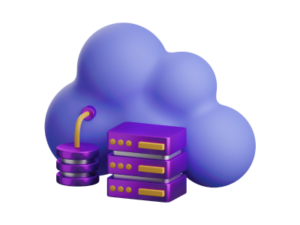
Maximizing the Freedom to Pivot
Here’s something to truly love: the cloud isn’t static. It equips businesses to pivot and adapt to unforeseen changes. Whether it’s a sudden shift in consumer behavior or market disruptions, embracing cloud technology ensures you can roll with the punches and come out stronger.
For example, during the global pandemic, many retailers had to quickly transition their operations online or ramp up their online capacities. Those relying on cloud computing found it much easier to adjust compared to those locked into rigid setups. Having that freedom and flexibility could make or break a business in times of crisis.
Scaling Smarter, Not Harder: The Edge for Growing Businesses
Hey there, ecommerce enthusiasts! Have you ever wondered why some online businesses seem to explode with growth while others struggle to keep up? The secret sauce often lies in their ability to scale effectively. And this is where cloud computing swoops in like a superhero to save the day!
Scaling your online store is all about being able to handle more customers, more orders, and more traffic as your business grows. But doing that without breaking the bank or pulling your hair out? That’s the real trick. Let’s explore how cloud computing makes scaling smarter, not harder.
The Magic of Elasticity
The buzzword here is elasticity. Think of your ecommerce platform like a stretchy band – when demand increases, the cloud helps you stretch your resources to accommodate the growth. Similarly, when business slows down during off-peak times, you can shrink your operations to save resources.
Here’s why this is a game-changer:
- Seamless handling of traffic spikes: Imagine launching a hot new product or running a holiday sale – your site can go from 10 visitors an hour to thousands at the drop of a hat. With traditional hosting, this could lead to crashes (cue panicked phone calls), but with cloud solutions, your platform automatically adjusts to keep things running smoothly.
- No need to overspend on fixed infrastructure: Say goodbye to expensive servers sitting idle during quiet periods. The cloud lets you pay for what you actually need, when you need it – more on that later!
Things That Would Make Your Life Easier
Now, imagine running a growing ecommerce business where your to-do list seems never-ending. The last thing you want to worry about is whether your website can handle increasing traffic. Enter cloud computing, which brings a variety of built-in perks:
- Auto-scaling: This nifty feature ensures your resources adjust automatically based on demand. No more waking up in the middle of the night wondering if your store can hold up.
- Geographic flexibility: If your customer base grows internationally, the cloud helps you handle regional surges without compromising performance.
- Plug-and-play integrations: Cloud platforms often come with tools and apps tailored to ecommerce, saving you the hassle of setting things up from scratch.
A Boost for Small- and Medium-Sized Stores
Think cloud scaling is just for ecommerce giants? Think again. It’s particularly awesome for small and medium-sized businesses. You don’t need a giant IT team or millions in capital to scale effectively. Many cloud providers offer scalable solutions at a price point that even startups can afford. Start small and let the technology grow with you as you expand your footprint.
The Cost Factor: Paying for What You Actually Use
Let’s talk money. One of the absolute best parts of cloud computing for ecommerce is its super-friendly pricing model that lets you pay only for what you use. Doesn’t that sound like a breath of fresh air? Say goodbye to hefty upfront investments in servers and IT infrastructure that may or may not live up to your expectations. With cloud computing, you get flexibility tied perfectly to your wallet.
How This Works (In Simple Terms)
Think of cloud services as a subscription. You’re not buying it outright; instead, you “rent” the resources you actually need. When your store sees periods of rapid growth—like, say, around the holiday shopping season—you can scale up in an instant to handle the surges in traffic. When things calm down, scale back and save money. It’s that simple!
Benefits You’ll Love
- Budget-friendly: You no longer have to worry about overspending on unused resources. The cloud helps you keep those costs lean and mean.
- Zero maintenance: Forget about maintaining expensive hardware—it’s all taken care of by the cloud provider.
- No wasted resources: Traditional data centers often result in over-purchasing to prepare for worst-case traffic spikes. The cloud eliminates that guesswork.
Cloud computing makes financial planning way easier for ecommerce businesses, especially for startups or SMBs trying to claw out their own slice of the market pie. Instead of gambling on your tech setup or being overprepared, you can focus spending where it truly matters—like customer acquisition, better user experiences, and innovative features!
Imagine This Scenario
Picture yourself running an online boutique that sells eco-friendly clothing. It’s been a nice, steady journey for a while, but then one day, a celebrity posts about your brand on Instagram, and boom! Suddenly, thousands of people are hitting your site. Thanks to the power of cloud computing, instead of your website crashing and losing those valuable customers, your cloud-based ecommerce store adapts instantly, allocating just the right amount of resources so those customers can shop till they drop.
Once the traffic cools down, the system automatically scales back to its normal state, avoiding any extra costs. That’s the magic of a “pay-as-you-go” model in action—it saves you from both the embarrassment of downtime and the unnecessary financial burden of overprovisioning.
Faster Load Times: Keeping Customers Clicking
Let’s talk speed. When it comes to eCommerce, time is not just money—it’s EVERYTHING. No one likes waiting, especially online. Studies show that if a website takes longer than three seconds to load, nearly 40% of visitors are out the door (or, in this case, off your site). Yikes! This is where cloud computing swoops in like a superhero for aspiring and established online businesses alike.
Why Speed Really Matters
We live in the age of instant gratification. Whether someone is ordering coffee on the go or diving into some late-night retail therapy, delays cause frustration. More importantly, slow websites breed doubt—customers start to wonder if your operation is professional or secure. And that doubt? It can cost you sales. Faster load times smooth out that experience, keeping current customers happy and turning curious browsers into loyal buyers.
But here’s the kicker: it’s not just about customers. Search engines, like Google, heavily favor websites that load quickly. The faster your site is, the higher it’ll appear in search rankings. So, improving load times is a win for both user experience and SEO.
What Makes the Cloud So Fast?
Now you might be wondering, “But what does cloud computing have to do with all this speed?” Glad you asked! Cloud computing operates on high-performance servers located in data centers around the world. This setup enables faster content delivery because the cloud brings your eCommerce website closer to your customers.
Let’s say you’re selling your handmade candles in the U.S., but someone in Australia adds three to their cart (yay for expanding your reach!). If your site is hosted on a traditional local server in, say, California, Aussies might experience delays as the data travels halfway around the globe. The cloud, on the other hand, uses something magical called Content Delivery Networks (CDNs) to deliver your content to the customer from the nearest available server. It’s like having multiple, strategically-placed mini-warehouses worldwide that cater locally to each visitor. Pretty cool, right?
Practical Steps to Leverage Cloud-Powered Speeds
- Switch to a cloud-hosted eCommerce platform like Shopify, BigCommerce, or WooCommerce on a cloud server. These services are built for speed and scalability.
- Enable your CDN—a must-have cloud feature. Many providers already include CDNs in their service packages. Just ask and activate!
- Optimize your media. Compress large images or use cloud tools like WebP format support to ensure visuals load quickly without sacrificing quality.
- Keep your cloud solution regularly updated. Updates often fix performance bottlenecks and ensure your site operates at peak speed.
Protecting What Matters: Data Security in the Online Space
When it comes to ecommerce, few things matter as much as data security. If you’ve ever shopped online or run an online store, you know just how critical it is to keep sensitive information safe. Think about it—your customers trust you with their data. And that’s a trust you simply can’t afford to break!
Cloud computing has truly revolutionized how businesses approach data security in the online space. Why does this matter so much? Let’s dive in and explore why cloud security is the ultimate bodyguard for your online store. Don’t worry—we’re keeping it simple, straightforward, and packed with actionable insights.
What Makes Cloud Computing Secure?
First, let’s address the elephant in the room: is the cloud really secure? The answer is an excited YES, but only if you choose trusted providers! Major cloud platforms, such as AWS, Microsoft Azure, and Google Cloud, invest billions in cybersecurity research and tools. They employ top-notch technologies like:
- Data encryption: Keeping your customers’ names, addresses, and payment info scrambled and safe from prying eyes.
- Firewalls and intrusion detection: Building unbreachable walls around your data while monitoring for any potential breach attempts.
- Regular updates and patches: Providers keep their systems updated so attackers can’t exploit vulnerabilities.
Sound technical? Don’t sweat it. These features often work seamlessly in the background, so you don’t need a degree in cybersecurity to benefit from them!
Why Is Data Security So Crucial to Ecommerce?
Imagine running a bustling ecommerce shop. Wouldn’t you want your virtual storefront as secure as Fort Knox? Cyberattacks aren’t just a scary headline—they’re real risks ecommerce platforms face daily. And here’s why prioritizing security is non-negotiable:
- Customer trust: A single data leak could ruin your reputation. In ecommerce, trust equals sales, so safeguarding data is the ultimate customer service.
- Compliance: Regulations like GDPR and CCPA mean you’re legally responsible for protecting personal data. The penalties for violations? You don’t want to find out.
- Peace of mind: Knowing your systems are secured lets you focus on growing your store, not battling hackers.
How Cloud Enhances Your Store’s Safety
Here’s some good news: you don’t have to do all the heavy lifting yourself. Cloud providers are your partners in security. They offer dozens of tools designed to help you proactively protect your ecommerce platform, including:
- Backups: Lost data from cyberattacks? Recover it in minutes, thanks to regular cloud backups.
- Authentication options: Enable two-factor authentication for extra layers of protection.
- Monitoring dashboards: Cloud dashboards keep you updated on suspicious activity in real time.
By leveraging these tools, your online business stays one step ahead of potential attackers. Plus, many of these features scale with your business, meaning you’re protected no matter how big (or small) your store becomes Global Reach, Local Performance: Serving a Diverse Customer Base
Have you ever wondered how your favorite global online stores manage to deliver a seamless shopping experience no matter where you’re located? It’s not magic—it’s cloud computing! Let me break it down for you, step by step, so you can see just how this technology helps eCommerce businesses cater to a worldwide audience, while still feeling like your local go-to shop.
Reaching Every Corner of the Globe
Imagine running a physical store that could only serve customers in your neighborhood. That wouldn’t work for modern businesses aiming to connect with diverse audiences across borders! With cloud computing, online stores can expand their reach globally in ways that were unimaginable a few decades ago. By leveraging a network of servers located around the world, businesses can make their websites available at lightning speed for customers whether they’re in Tokyo, Toronto, or Timbuktu.
Hosting your store on the cloud allows for global Content Delivery Networks (CDNs), a real game-changer. These CDNs ensure that your customers are routed to the server closest to their location. The result? Faster load times, a smoother shopping experience, and fewer frustrated users bouncing off your site. And let’s be honest—that alone increases the chances of a completed sale.
Localization Without Compromise
Now, let’s talk about the personal touch. Catering to international audiences doesn’t mean losing the local feel. Cloud computing enables eCommerce platforms to offer localized content, currencies, languages, and even culturally preferred payment methods, tailored to the customer’s location. Here’s the best part—this happens dynamically and doesn’t require you to manually manage thousands of differentiated versions of your site.
For instance, if someone in France visits your site, they can automatically view your content in French, with prices in Euros. Meanwhile, a customer browsing from Australia enjoys prices in AUD and details that make sense to their shopping preferences. Localization made that simple? Sign me up!
Adapting to Local Demands Effortlessly
One of the joys of cloud computing is how it equips eCommerce businesses to quickly adapt to shifting regional demands. Suppose an unexpected surge of traffic hits from a specific country due to a viral marketing campaign. With traditional servers, your site might just crash under pressure (a nightmare for any retailer!). But thanks to the flexible scaling capabilities in cloud infrastructure, your store can handle high traffic volumes without a hitch. It’s like having an invisible helper always ready to pitch in when things get busyThe Green Impact: Sustainability in Online Retail Operations
Hey there! Let’s dive into something we hear about all the time but don’t always connect to ecommerce: sustainability. Believe it or not, the tech decisions businesses make—including embracing cloud computing—can have a genuine environmental impact. Crazy, right? Let’s explore how going cloud-based can help ecommerce businesses in becoming greener while boosting their operations.

Why Sustainability Matters for Ecommerce
Consumers today strongly value ethical and environmentally friendly businesses. A growing number of shoppers want to know where products come from, how they’re made, and, yes, how businesses manage their carbon footprints. Sustainability isn’t just the responsible thing to do—it’s a way to build customer trust and stand out in the crowded ecommerce market.
This is where cloud computing shines, helping businesses drive eco-friendly operations while also improving efficiency. A real win-win, don’t you think?
Reducing Physical Infrastructure
The cloud reduces the need for energy-guzzling physical data centers. Instead of your ecommerce brand relying on its own servers, cloud providers consolidate these services into efficient, shared data centers. Imagine swapping dozens of small, wasteful machines for a few hyper-efficient ones—it’s like the digital version of carpooling!
These large-scale centers are optimized for energy savings. Many providers, like Google Cloud or AWS, even aim for 100% renewable energy use or employ innovative energy-saving technologies. This means that when you store your data and run your operations on the cloud, it’s a greener option compared to maintaining your own hardware.
Powering Smarter Energy Use
Think about the way traditional servers work. Whether your website traffic is high or low, a server uses the same amount of energy. That hardly seems efficient, right?
The beauty of cloud computing lies in its ability to scale up or down based on your business needs, optimizing energy consumption. During quieter months, cloud usage contracts, using less power. When you’re running a holiday promotion, the system ramps up efficiently. This elasticity ensures energy isn’t being wasted on unused capacity, directly aligning with eco-friendly principles.
Cutting Down on E-Waste
Here’s a kicker: by shifting ecommerce operations to the cloud, companies can significantly reduce electronic waste. Physical servers wear out and need to be replaced, often leading to massive amounts of discarded tech. Cloud providers, however, are in a better position to manage, recycle, or upgrade their infrastructure responsibly and in bulk. Out of sight doesn’t mean out of mind here—cloud services help keep carbon footprints and e-waste low.
Sustainability as a Brand Booster
Now let’s be real: sustainability isn’t just good for Mother Earth. It’s also a fantastic way to connect with customers who care about the planet. By embracing cloud computing, you’re sending a strong message to users that you’re committed to reducing needless waste and energy consumption.
- Consider showcasing your sustainability focus in your marketing campaigns.
- Leverage eco-friendly badges and certifications tied to using renewable infrastructure with certain providers.
- Use transparency about your efforts to build deeper customer loyalty.

